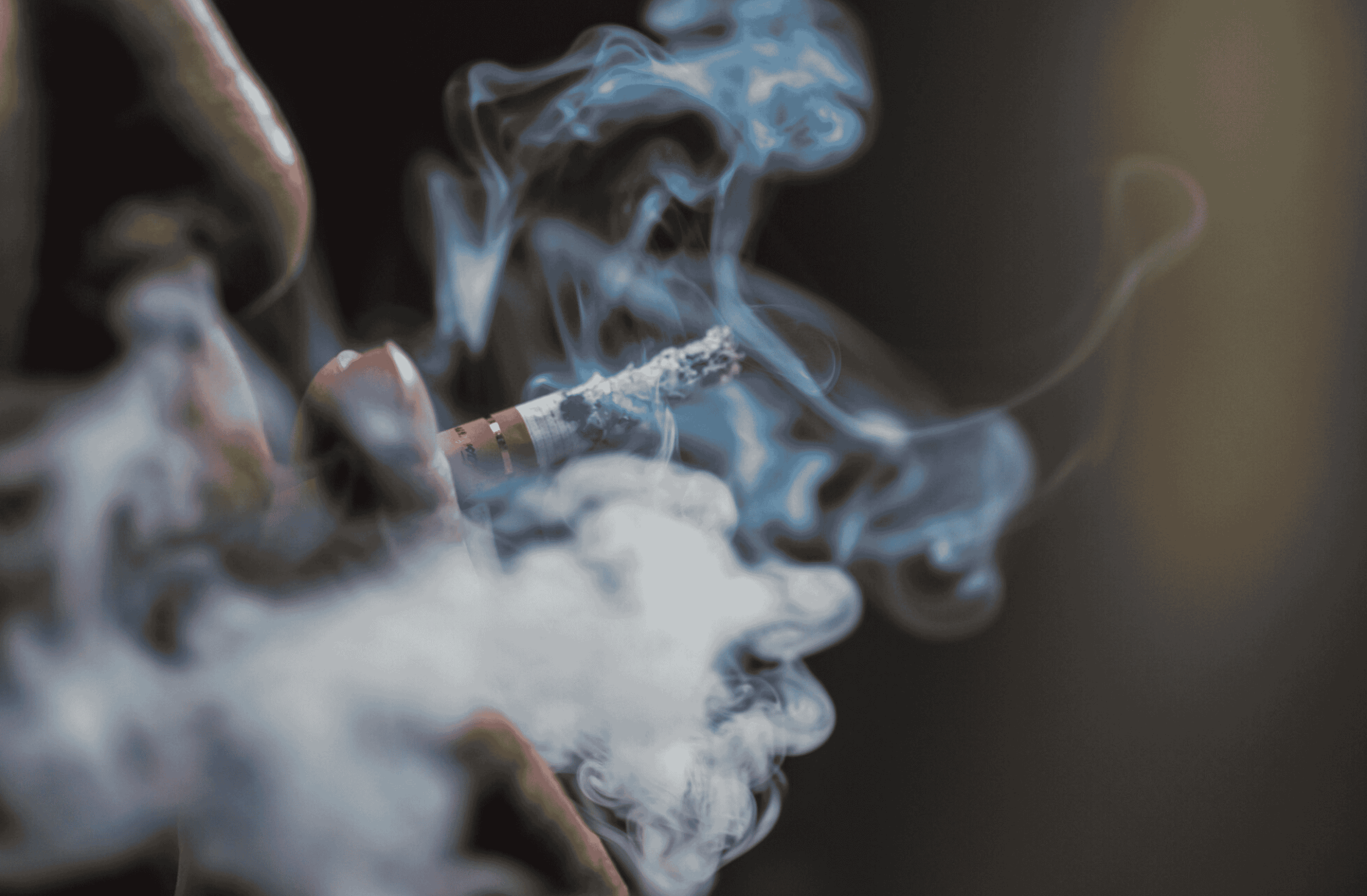
Men are constantly seeking ways to optimize performance, energy, and hormone levels, particularly as they age. Amid this landscape of so-called shortcuts for fixing low T, one controversial idea has emerged: can using nicotine actually boost testosterone in men?
Whether through vaping, nicotine gum, or even old-school cigarettes, some have floated the idea that nicotine might offer a shortcut to more optimized testosterone levels. On the surface, it might seem plausible, since nicotine is a stimulant, and stimulants tend to ramp things up, including focus, energy, alertness.
But when it comes to hormone health, things aren’t so simple. Nicotine can create serious health issues that negate any impact it might have on your testosterone levels.
In this article, we’ll take a clear-eyed look at the science behind testosterone levels, nicotine use, and the impact ingesting nicotine can have on your T levels. We’ll also discuss how nicotine can negatively impact your long-term hormonal health, and explore healthier, more natural alternatives for boosting testosterone.
The Role of Testosterone in Men’s Health
Testosterone’s effects go far beyond just sex drive or muscle gains. It’s one of the most influential hormones in a man’s body, impacting nearly every aspect of health and function.
Here’s what optimal testosterone supports:
- Muscle mass and physical performance – Testosterone helps build and maintain lean muscle, bone density, and strength.
- Mood and mental clarity – Balanced testosterone levels are associated with improved mood, reduced anxiety, and sharper cognitive function. (1)
- Sexual drive and function – Libido, erectile function, and sperm production are all highly dependent on healthy testosterone. (2)
- Energy and stamina – Testosterone can fuel motivation, resilience, and help enhance daily vitality, especially for aging men. Some research has suggested men with higher testosterone are more motivated to compete for a higher status. (3)
- Metabolic and fat distribution control – Hormonal balance helps keep excess fat, particularly visceral fat, in check.
After about age 30, testosterone levels naturally begin to decline by roughly 1% per year. (4) For many men, that gradual dip adds up, and may lead to fatigue, irritability, reduced sex drive, or unwanted weight gain. That’s why the search for ways to maintain or enhance testosterone is so popular, and why it’s critical to separate credible solutions that work, from risky fads that may do more harm than good to your overall health.
What Is Nicotine and How Does It Work in the Body?
Nicotine is a plant alkaloid found primarily in tobacco. It’s a highly addictive compound with powerful stimulant properties. Once inhaled, chewed, or absorbed through the skin (via patches), nicotine enters the bloodstream and reaches the brain within seconds. (5)
There, it binds to nicotinic acetylcholine receptors, triggering the release of several neurotransmitters, including dopamine (feelings of reward and pleasure), norepinephrine (focus and alertness), acetylcholine (attention and memory), serotonin (mood and sleep), and beta-endorphone (pain reduction and mood elevation). (6)
This chemical cascade explains the “buzz” many users report when using nicotine: heightened concentration, mild euphoria, reduced hunger, and increased energy. These effects can mimic some of the desirable outcomes associated with healthy testosterone level, at least temporarily.
Nicotine can be delivered in a variety of ways, including:
- Combustible tobacco (cigarettes, cigars)
- Smokeless tobacco (chew, snuff)
- E-cigarettes and vapes
- Nicotine replacement therapy (patches, gum, lozenges)
- Nicotine pouches (oral dissolvable forms like Zyn)
Each method has its own risk profile, but they all share one thing in common: nicotine’s interaction with the nervous and endocrine systems, which can affect hormones, including testosterone.
Can Nicotine Increase Testosterone? What the Science Says
Despite its potential negative impact on overall health, many men still wonder: does nicotine boost testosterone? Some short-term studies have suggested that nicotine may lead to a brief uptick in testosterone levels. (7) The proposed mechanism involves nicotine stimulating the adrenal glands and possibly the hypothalamus, which can cause a temporary rise in luteinizing hormone (LH). This hormone, in turn, signals the testes to produce more testosterone.
However, these spikes are inconsistent and heavily dependent on dosing and timing. Additionally, the spike in testosterone has not shown to last over a sustained period and can be totally absent with chronic nicotine use. (8)
While nicotine may provoke a temporary reaction in the hormonal system, that’s very different from creating a lasting or therapeutic increase in testosterone. In fact, some longer-term studies show that nicotine—especially through smoking or vaping—disrupts the hormonal balance, potentially leading to lower testosterone over time. (9)
Research suggests that chronic nicotine use may impair Leydig cell function (the testosterone-producing cells in the testes) and disrupt the hypothalamic-pituitary-gonadal axis. (10). It may also alter your sleep architecture, which can indirectly lower testosterone levels. (11)
While the science is mixed on whether nicotine can provide a temporary boost in testosterone levels, that does not mean it should act as a permanent or temporary solution for men looking to boost testosterone levels. A fleeting hormone response is not the same as a health benefit—and certainly not a treatment strategy.
Nicotine and Long-Term Hormonal Health
If you’re thinking of using nicotine as a testosterone hack, it’s critical to consider the broader impact it has on your body and your hormones.
Evidence shows that just some of the long-term chronic effects of nicotine use for men’s hormonal health may include (12):
- Increased effect of erectile dysfunction and reduced circulation
- Impotence, infertility, and reduced sperm count
- Poor sleep quality and reduced quality of life
- Potential disruption of luteinizing hormone (LH) and follicle-stimulating hormone (FSH)
While research is inconclusive on some of these potential effects, they are still worth noting for men considering using nicotine to boost testosterone.
Even nicotine products that avoid the carcinogens found in cigarettes still introduce stress to the endocrine system. Over time, that stress adds up—potentially blunting natural testosterone production and increasing the risk of hormone-related issues like fatigue, weight gain, low libido, and mood swings.
It’s also worth noting some of the significant overall harmful effects chronic nicotine use can have on your health. This includes significant increased risk of cardiovascular disease, heart attack and cancer, reduced sense of taste and smell, declining skin condition and overall appearance, and reduced lung function. (13)
Why Quick Fixes Are Tempting—But Rarely Worth It
Low testosterone can leave you feeling drained, discouraged, and stuck. That’s when quick fixes become especially tempting. Something that promises sharper focus, better energy, or a boost in performance sounds like a solution, but it’s critical to weigh the long-term risks with the short-term benefits.
While nicotine use may deliver a temporary boost in some symptoms of higher testosterone, masking symptoms isn’t the same as treating the cause. Over time, your body is likely to pay the price for these quick-fix solutions, and you still will not have properly treated your low T.
The smarter approach is to support your body’s natural hormone production through lifestyle, nutrition, and, when appropriate, medically guided therapies like Testosterone Replacement Therapy (TRT).
Safer and More Effective Ways to Boost Testosterone
Proven methods that support lasting hormone balance are the best way to treat low testosterone for aging men. These approaches may not offer overnight results, but they set up your long-term future, allowing for long-term benefits.
Some recommended methods to help naturally boost testosterone levels include:
- Strength training and interval workouts, which can improve natural testosterone production and insulin sensitivity. (14) Read more here about how working out can increase testosterone.
- A high-protein, nutrient-dense diet can support hormonal pathways with the building blocks your body needs.
- Adequate sleep (7–9 hours per night) restores the body and regulates hormone cycles.
- Stress management techniques like meditation, therapy, or cold exposure reduce cortisol and support endocrine health.
For men dealing with confirmed low T, Testosterone Replacement Therapy can also offer a direct, effective solution. Under medical supervision, TRT can restore hormone levels to a healthy range—potentially improving energy, mood, focus, libido, and muscle composition.
If you’re interested in learning more about the testosterone health services available, contact your local Gameday Men’s Health location to schedule a free consultation.
Why Choose Gameday Men’s Health?
At Gameday, we specialize in helping men take control of their health, not through fads or quick hacks, but with real science and customized care that deliver long-term results and help you feel happier and healthier.
Here’s what you can expect:
- Accurate, morning-based testosterone testing to reflect your true hormone levels.
- Individualized treatment plans that address the root of your symptoms.
- Convenient, judgment-free clinics where your time and goals are respected.
We don’t provide shortcuts that will give you only temporary relief. We deliver long-term solutions designed to help you feel better, perform better, and live with confidence.
The Final Verdict on Nicotine and Testosterone
There’s limited evidence to suggest nicotine is reliable way to boost testosterone. While it may cause a temporary hormonal response, that effect is minimal, unsustainable, and often outweighed by long-term harm.
The risks, which range from lowered sperm quality to disrupted endocrine function, make nicotine a poor choice for any man looking to optimize his hormones or health.
Instead, men who are looking to boost their testosterone levels and feel like themselves again should take a smarter route. Focusing on proven lifestyle strategies, and if necessary, working with a trusted medical provider to explore TRT, can deliver game-changing results.
At Gameday Men’s Health, we’re here to help you cut through the noise—and get back to feeling like yourself. If you’re ready to take the first step towards regaining control of your health, contact your local Gameday location today.
References
- The Connection Between Testosterone and Mental Clarity: How to Think Sharper
- The role of testosterone in male sexual function
- Exogenous testosterone increases status-seeking motivation in men with unstable low social status
- How Aging Affects Testosterone and Muscle Mass in Men
- Nicotine Is Why Tobacco Products Are Addictive
- Pharmacology of Nicotine: Addiction, Smoking-Induced Disease, and Therapeutics
- Cigarette smoking and testosterone in men and women: A systematic review and meta-analysis of observational studies
- The endocrine effects of nicotine and cigarette smoke
- Nicotine alters male reproductive hormones in male albino rats: The role of cessation
- An Overview of E-Cigarette Impact on Reproductive Health
- Effects of smoking on sleep architecture and ventilatory parameters including apneas: Results of the Tab-OSA study
- Nicotine & Testosterone Levels: Are They Related?
- The endocrine effects of nicotine and cigarette smoke
- 7 Benefits of High Intensity Interval Training (HIIT)






